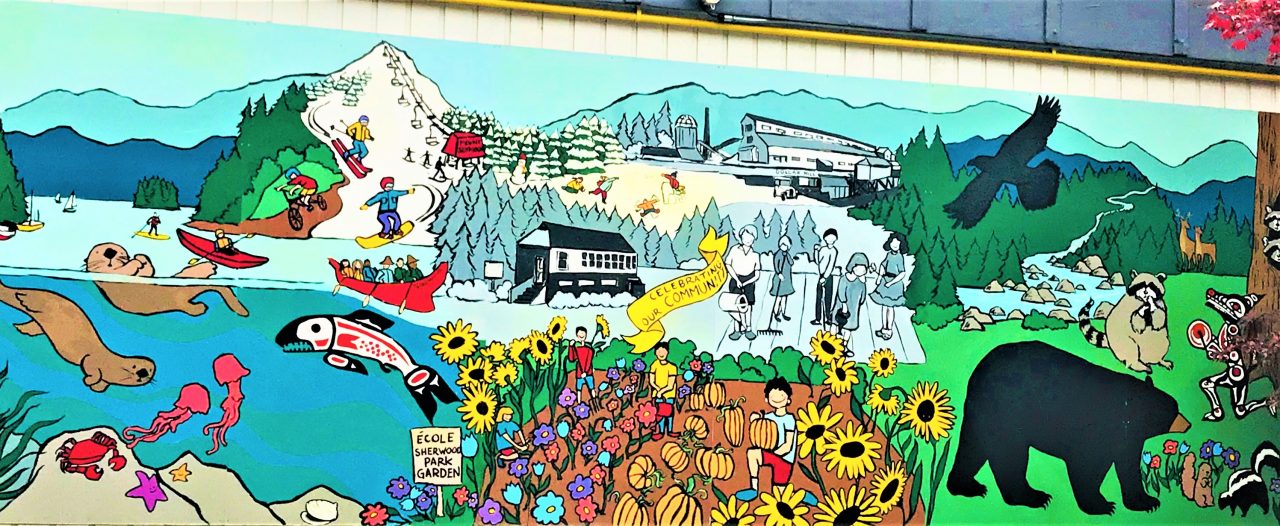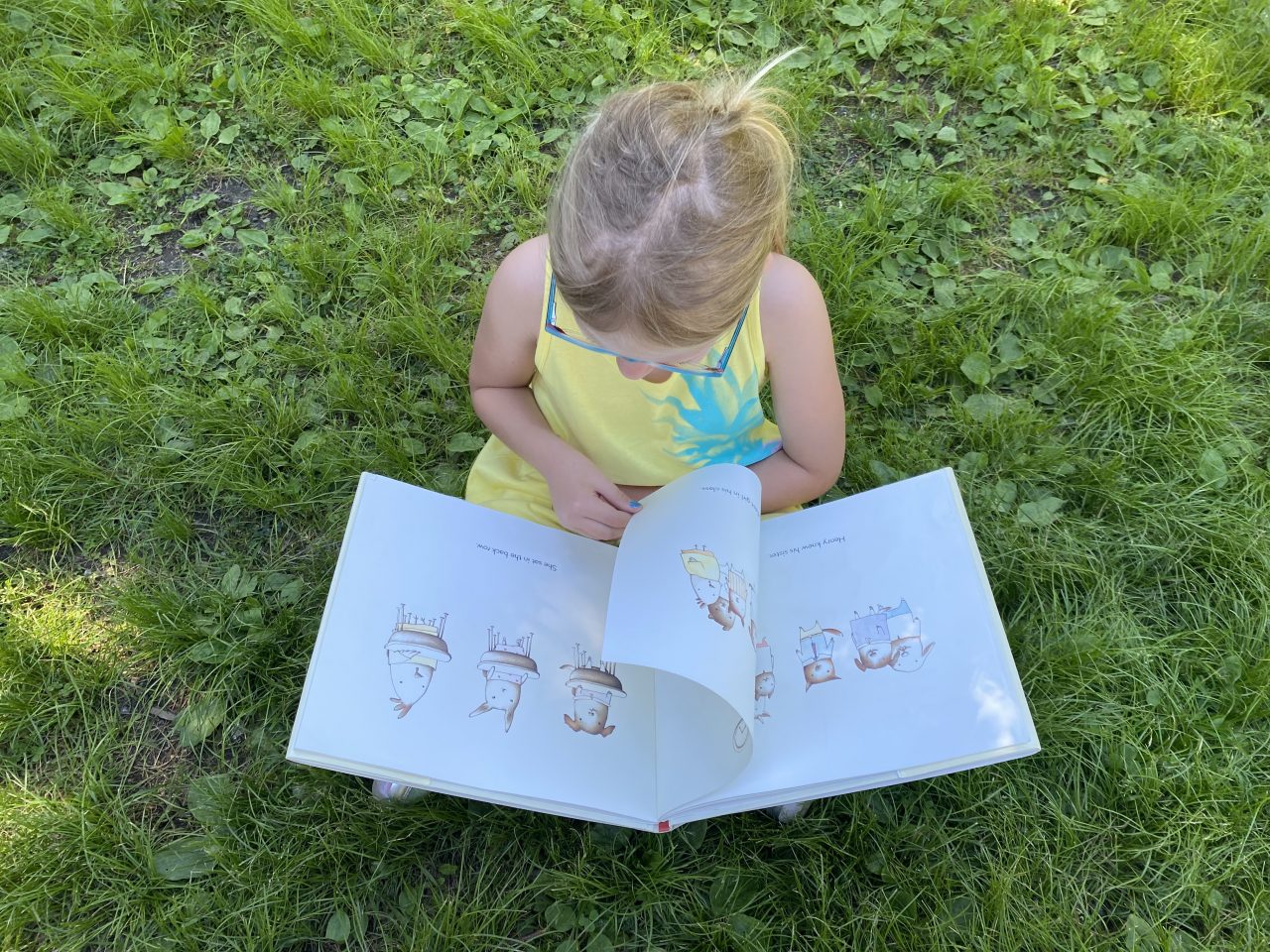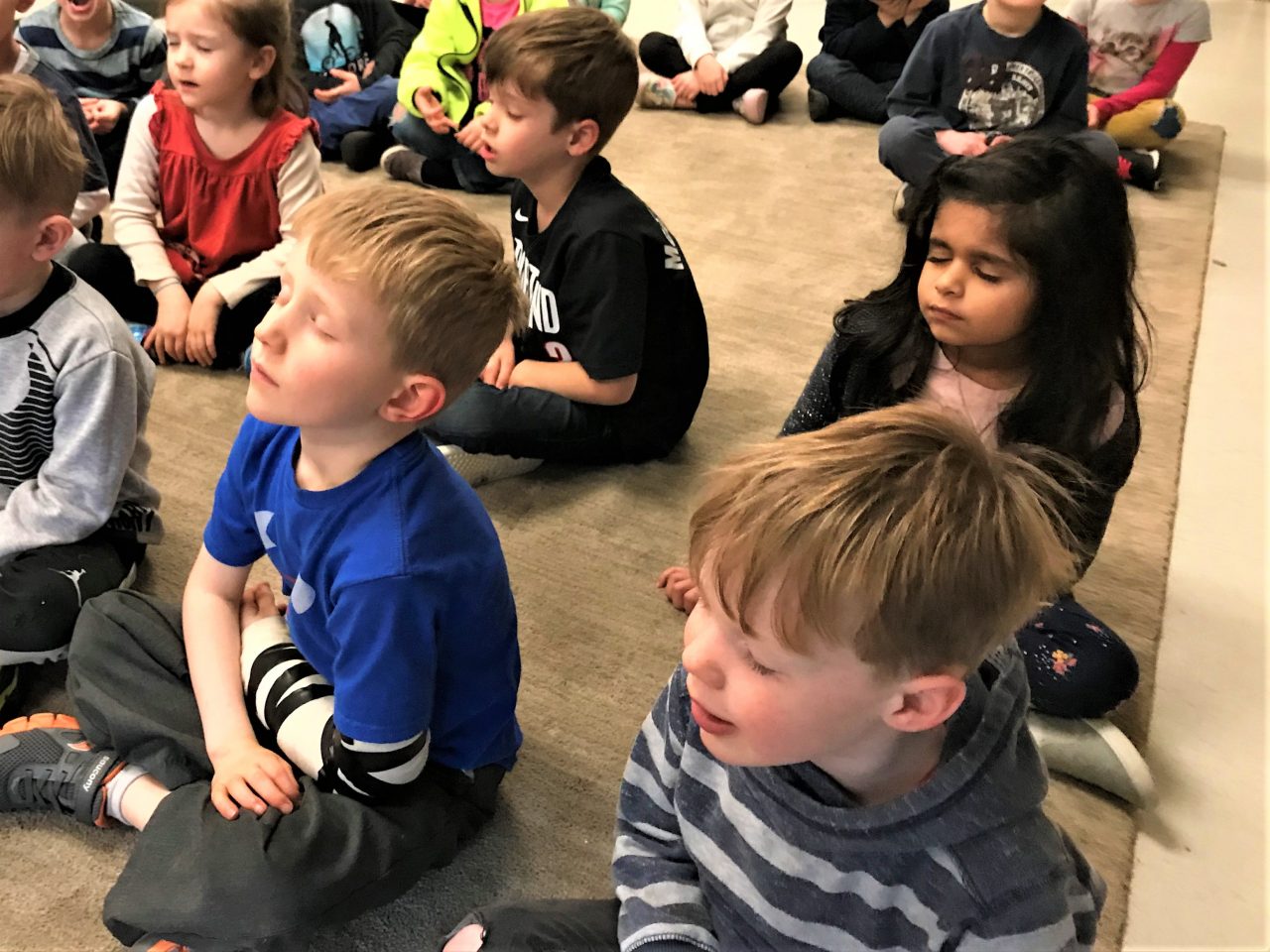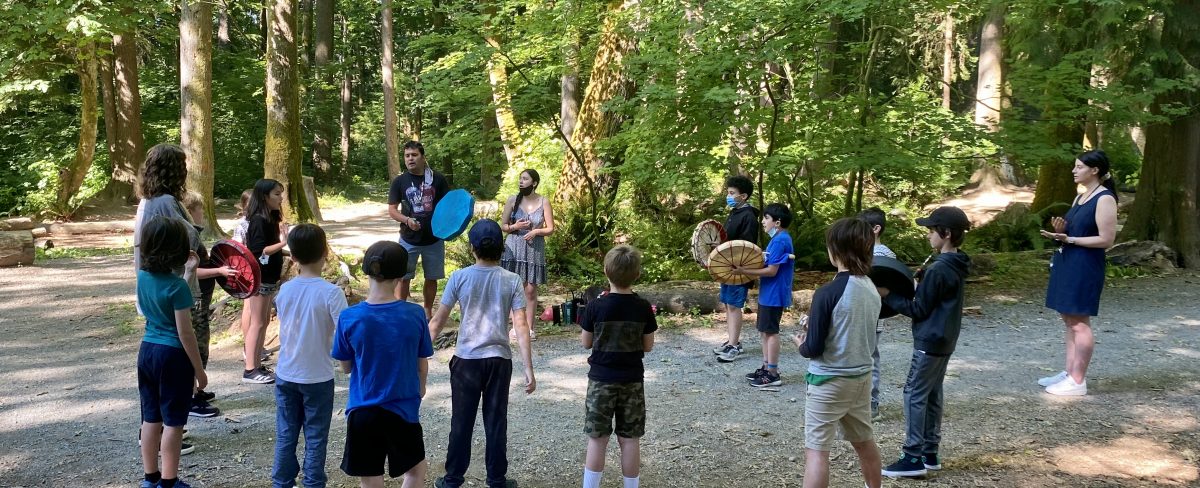Vision to Goal Setting
What is our Vision for Learning?

Traditional Welcome
We would like to thank the Coast Salish people, specifically the Squamish Nation and Tsleil Waututh Nation, whose traditional, unceded, territory the North Vancouver School District and Ecole Sherwood Park Elementary reside on. We value the opportunity to learn, live, and share educational experiences on this traditional territory.
Mission
At Sherwood Park Elementary, we strive to meet the needs of all students and promote growth as citizens. By fostering strengths and abilities in our students and staff, we support a positive inclusive learning environment that celebrates diversity.
Guiding Beliefs
Sherwood Park Elementary is a great school, and our staff, students, and parents are moving forward in an increasingly positive and supportive relationship with each other. We acknowledge and respect that there must be a delicate balance between encouraging partnership and respecting the busy and demanding lives and responsibilities of staff, students, and parents. Through our current work, we are committed to strengthening our relationship with our parent community and work as partners to provide the best academic and social-emotional education for our students. We will work together as a community to build a common language between school and home in literacy, numeracy and social-emotional learning for students in Kindergarten to Grade Seven.
Community Context
Sherwood Park Elementary is a dual track school located in the North Vancouver School District in the community of Deep Cove. We enroll approximately 400 students in both the French Immersion and English Programs from Kindergarten to Grade Seven. When our students move onto secondary school, our French Immersion students attend Ecole Windsor Secondary and our English students attend Seycove Secondary.
One of our strengths is our diverse learners from different backgrounds, and building a sense of community is important to us. We are part of Deep Cove community and proud to be connected to the Tsleil Waututh Nation.
We believe a strong home- school partnership is paramount. We view parents and families as educational partners and believe that students grow and learn best when school and home work together for (student) academic and social-emotional growth. Our Parent Advisory Council (PAC) is highly involved and supports many additional programs that enhance the provincial curriculum and build community such as sports programs, specialized speakers, hot lunch program, and community events.
We support a positive, inclusive learning environment that celebrates diversity. Sherwood Park staff take great pride in their work, and take a collaborative approach to meeting the needs of all students and promoting growth as citizens. Staff are committed to supporting all aspects of student growth and go beyond the regular instructional day to support students through academic and social-emotional support, mentoring, coaching, and fine arts programs. There are many opportunities for students to get involved in school through leadership programs, fine arts programs, and sports programs.
Our school is rich with diversity and celebrates many cultures that make our school great. We continue to build upon our strong connections to community and home to work as partners in our students’ education. Our learning community believes in team and is fully committed to our students. Sherwood Park Elementary is a great place to work, learn, and play.
Planning & Implementation
What is our Action Plan?
Using the Appreciative Inquiry Model staff has identified our strengths as a school and this led to our guiding beliefs. This process involved a number of stakeholders and resulted in the identification of two main goals along with strategies. As with any endeavour that intends to enhance the life experience for humans, our goals and plans continue to change over time. We are proud of the work that has been completed and excited to be taking on a new goal and strategies in September 2023.

Goal 1: To improve literacy skills in Kindergarten to Grade Seven students.
Objective: To establish and implement a consistent and comprehensive reading program that teaches decoding, reading fluency, and reading comprehension skills in all Kindergarten to Grade Seven students.
Strategies: We will…
- offer professional development opportunities in the area of reading comprehension and strategies at the Grade 4-7 level by having our specialist teachers such as Learning Support Teachers, Literacy Centre Teacher, and other teachers lead staff development at school-based and district-based professional development days and/or at monthly staff meetings;
- support teachers in learning to use specific programs such as Adrienne Gear’s Reading Power
- continue implementing phonics programs such as Jolly Phonics and/or Itchy’s Alphabet to help teach decoding skills for Kindergarten to Grade 3/4 students and a guided reading program for grades one to four students for reading accuracy and reading fluency;
- continue to implement a guided reading program;
- continue to implement a home reading program for Kindergarten to Grade 3/4;
- develop novel studies and/or literature circles for decoding, reading fluency, and reading comprehension for students in grade four to seven;
- use Adrienne Gear’s research-based Reading Power Program to provide consistent instruction in reading comprehension strategies Kindergarten to Grade Seven; and
- partner with parents to use the same language and strategies at home while reading with their child(ren).

Goal 2: To build a sense of safety and respect grounded in the social-emotional health and well-being of the entire school community.
Objective: To teach, practice, and support emotional regulation so that all students, staff, and families can better understand themselves as learners, positive school members, and global citizens.
Strategies: We will…
- install calm corners in each classroom from kindergarten to Grade seven
- continue to use the research-based programs such as Second Step, Open Parachute and Everyday Speech to enhance students’ social-emotional learning: empathy, self-regulation, and solving problems in a pro-social manner;
- partner with families to use the same language and strategies at home with their child(ren);
- continue to support all students in creating a personal bank of self-regulation strategies;
- promote growth mindset language between teachers, students, and families;
- create a bank of resources (including evidence-based programs) for school staff to use for targeted interventions of specific social emotional skills; and
- provide professional development for calm corners and sensory pathways
Goal 3: To improve numeracy skills in students K-7.
Objective: To establish a consistent and comprehensive numeracy program that teaches basic numeracy skills, problem-solving and real-life math application across all grades.
Strategies: We will…
- work with math specialists to develop a consistent math approach across Grade k-3
- pilot a primary numeracy program across k-3 that addresses: fundamental math skills, problem-solving and real-life math applications
- provide pro-d for teachers on innovative numeracy teaching
- complete an inventory of numeracy resources within the school to ensure all classes have the fundamental materials to support a comprehensive numeracy program
Monitor Evaluate & Adapt
What are our Indicators of Progress?
As with any meaningful plan, our goals and strategies will be monitored and evaluated on an on-going basis.
Goal 1 – We will use the following assessments:
- K = Early Literacy Assessment
- Gr 1-3/4 = Early Literacy Assessment and PM Benchmark/GB+
- Gr 4-7 = Jerry Johns/RELI
Goal 2 – We will use the following assessments:
- qualitative data collection from staff, students and parents
- monthly staff reflection
- consistent review of timeline for pilot development and implementation
- checklist developed by math specialists to help navigate the development of a k-3 math program
Communicating Progress
How do we Communicate our Progress?
The school planning process is ongoing and is intended to support an ongoing dialogue within the community of learners promoting understanding, respect, and shared values. Communicating the school’s vision, values, accomplishments, and future directions enables dialogue and the pursuit if our collective goal of supporting students and the learning community in developing their literacy and social-emotional skills in the best way possible.
Progress is communicated to families on an ongoing basis with the Sherwood Park Connector and by classroom teachers. Families are encouraged to contact their classroom teacher with any questions, comments or concerns regarding their child’s literacy, numeracy or social-emotional learning and growth. Highlights of progress from the 2022-2023 school year are indicated under “Latest Progress and Updates”
Latest Progress & Updates
As with any meaningful plan, our goals and strategies will be monitored and evaluated on an on-going basis. Over the course of the 2022-23 school year, Literacy and Social-Emotional Learning teams meet on a regular basis to reviewing and evaluate progress and consider next steps.
The indicators draw on qualitative and quantitate data and may include the following:
- Student voice through random sampling
- Surveys
- Information from classroom teachers and specialists
- Feedback from parents and community members
- Photographic evidence
- Visual collection of understanding
Progress is communicated regularly to families by way of the Sherwood Park Connector and teacher-family communication. Highlights of progress during 2022-2023 school year include:
Goal 1 – Improving literacy skills in Kindergarten to Grade 7 students
- Continued expansion of the guided reading program to include classes at the primary level, grade 4 and grade 5;
- Successful implementation of home reading program at primary level;
- Reading assessments completed K-7 at regular intervals through the school year with information guiding school-based instruction and intervention;
- Professional development for staff in the areas of guided reading, home reading, phonics and reading assessments.
Following several years of hard work, the objective ” to directly teach emotional literacy, positive decision making, and healthy relationships in all Kindergarten to Grade 7 students” has seen great success. Highlights include:
- Implementation of Second Step Program, Open Parachute and/or Everyday Speech in all classes K-7;
- Pilot of Calm Corners completed in one primary and one intermediate classroom
- Development of a sensory pathway
- Development of common language that draws from various programs including Zones of Regulation, Second Step and prevention programs. Language used by students, staff and families, to support self-regulation and problem solving in classrooms and common areas of the school including outside play and learning spaces.

